Champagne (1928)
Directed by: Alfred Hitchcock
Written by: Eliot Stannard
Starring: Betty Balfour, Fredinand von Alten, Gordon Harker, Jean Bradin
AVAILABLE ON DVD
RUNNING TIME: 86 min
THE HITCHCOCK CAMEO: none
REVIEWED BY: Dr Lenera, Official HCF Critic
SPOILERS!
A spoilt rich girl leads a life of luxury on the profits from her father’s champagne business, especially drawing the ire of her father after using his airplane to fly to her boyfriend on an ocean liner headed to France. She has dinner alone when her boyfriend becomes seasick and is joined at her table by a mysterious man who proceeds to then always turn up when least expected. Betty receives a telegram from her father who disapprovingly warns her that the boyfriend is a gold digger. To prove her father wrong she asks the boyfriend to marry her, then after two quarrels her father turns up after the ship has docked with some bad news; his business has been wiped out in the stock market, leaving them with very little money….
Champagne is another light comedy from Hitchcock, and, though the great man once said it marked the lowest ebb of his career, I didn’t find it any weaker than The Farmer’s Wife. It’s a slight story which on film just about passes the time when enhanced by Hitchcock’s visual trickery, which is back with some force now. It’s not really a good film, filled with scenes that repeat each other and isn’t particularly funny. It’s intended to be as light and frothy as the drink of the same name of the film’s title, but, much like champagne in my opinion, doesn’t taste too good and after a while you’ll probably tire of it and maybe want to move on to something more appealing. I didn’t actively dislike the picture though; working my way through these Hitchcock silents is more enjoyable than I expected, though I can’t hide the fact that I can’t wait to get to the next decade. It occurred to me at the start of doing this review that I might be being a little too hard on these early films, but then I did find it hard to stop praising The Lodger!
Michael Powell, soon to be a great director himself, worked as a stills cameraman on Champagne, recalled that Hitchcock was far from happy during this period in his career. Despite receiving a big salary, he was trapped in a long term contract and disliked having to do his best with whatever ‘assignment’ he was given. Making a film called Champagne was initially his idea, being fascinated with the drink, and he came up with a story about a girl in France who makes a humble living nailing down the lids of champagne crates but has never actually tasted champagne. She goes to Paris and gets to live the high life associated with the drink for a while until, disillusioned with parties, nightclubs, drinking and men, she returns to her humble former life. A typically moralistic tale, but better than what eventually made its way onto the screen. The studio, looking for a vehicle for their star Betty Balfour, best known for playing Squibs in a series of popular comedies, asked writer and critic Walter Mycroft to come up with a somewhat lighter and less moralistic spin on the concept, after which Eliot Stannard adapted his treatment into a full screenplay. Despite a smooth production the film was poorly received so maybe they should have gone with Hitchcock’s original idea.
As with Easy Virtue, the film’s early section is pretty good and is clearly the part in which Hitchcock is most interested. He makes the most of the shipboard setting, with some good gags like the Girl’s [again, the characters don’t have ‘proper’ names] dress blowing so much when her boyfriend [named The Boy] takes her outside to propose to her that he has to do the deed after having taken the thing off, and a drunken man who staggers about when the sea is calm but is able to walk normally when the ship is swaying. The Girl’s arrival by plane is cleverly done, with what seems like total panic on the ship as everyone rushes madly onto the deck before we see the Girl, and for a second there appears to be several of her in a scene where the Boy awakes from a hangover and has to adjust. One of the first shots is of a party seen through the bottom of a champagne class, a trick repeated at the end of the film, and I must say that the drink is consumed continuously throughout the film. Hitchcock seems to be both attracted to and repelled by the milieu and behaviour of these champagne-quaffing spendthrifts.
Once the Father has turned up and life changes considerably for the Girl, interest starts to wane quickly. It’s hard to see what both the Man and the Girl see in each other and actor Jean Bradin is so bland that the film sinks somewhat whenever he turns up. The Father and the Girl start to live a life of poverty, but it doesn’t seem very bad at all. A modicum of suspense is generated by the Man, a mysterious person whom the Girl never seems to be far away from, and there’s actually a pretty decent scene when she is locked in his cabin. This film succeeds best when it doesn’t focus on the plot and slows down to concentrate on the feelings of the characters. There is a nice bit where the Girl begins to work as a flower seller and finds herself back in her familiar environment, and her conflicting emotions are well evoked as, for what seems like ages, she slowly moves towards the bar and watches drinks being made. Supposedly Hitchcock didn’t like Betty Balfour much, but the film is crammed with expressive close-ups of her face, and he gives her a great entrance in a bit where she enters a party having changed into clothing which the Father considers “more suitable”. She carries off her thinly written role well.
Towards the end it is revealed that the Father was lying about the stock market crash and just wanted to teach her daughter a lesson. Okay, I can buy that, but we also learn that the Man was aiding the Father and that the latter was happy for the Man to elope with his daughter as long as he got him away from the Boy. Considering the Man also tried it on with the Girl earlier in the back of a taxi, it seems extremely dodgy for the Father to let his daughter to be ‘used’ in this way. The Father is played by Gordon Harker who made such a good impression in The Ring and The Farmer’s Wife, and the actor does really well with a more serious part, devoid of the comedic elements he had been so good at doing before. Unfortunately, even he couldn’t prevent me from seriously disliking the Father at the end, and the supposed ‘happy ending’ leaves a really sour taste in the mouth. The story is cruel but seems to think it isn’t.
Champagne is unevenly paced and actually some scenes are rather uninteresting, but set against that you get some amazing transitions [such as from a bed sheet to a tablecloth] and the cinema’s first freeze frame, where the Girl remembers being at the party on the ship and the shot is paused, after which, via a jump cut, it becomes a photograph on a wall! At times the director seems to be trying his hardest to make this film interesting. He doesn’t entirely succeed, which means that this is probably another one for buffs rather than casual or new fans, though I certainly didn’t regret watching it. I should warn that the version I saw [from the St Clair Hitchcock box set] is severely weakened by its music score, which consists of classical pieces from the likes of Ravel, Sibelius and Elgar randomly strung along with no attempt to match what is taking place on screen. The first few scenes are set to the beautiful melancholy of Mahler’s Second Symphony [the piece made famous in Death In Venice] and it’s laughably incongruous!


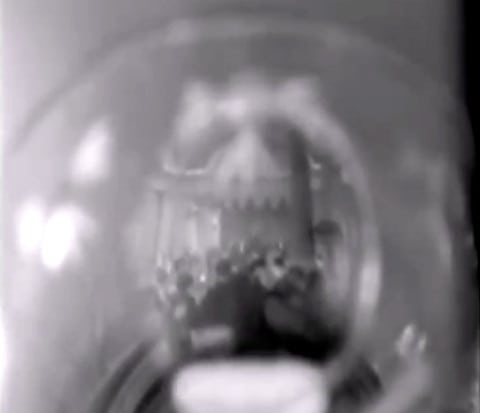
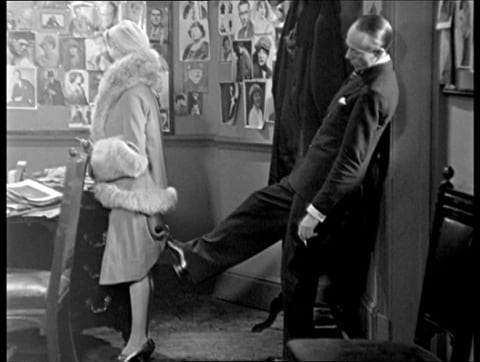



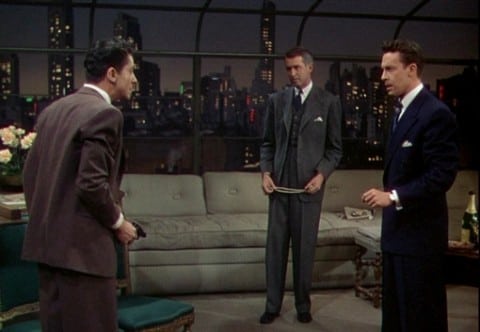
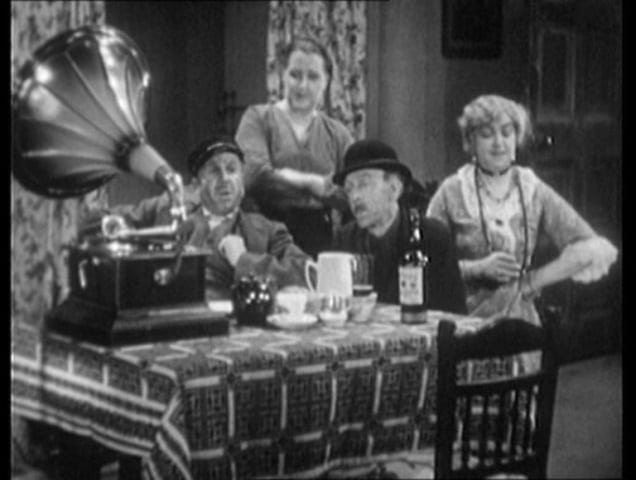
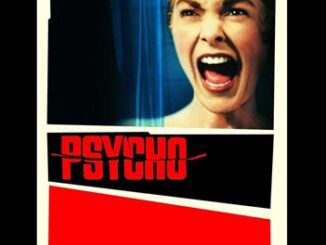
Be the first to comment